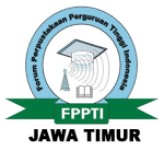Plagiarism Check
It is the policy of this journal to use automated software, like TURNITIN to check for plagiarism in all submitted manuscripts. This journal can not accept any plagiarism in any manuscripts or it will be rejected immediately. The manuscript is passed if the similarity is less than 25%. The results of this automated detection are forwarded to the Section Editor and will serve as the preliminary check for plagiarism. Plagiarism may also be identified during the review process by the technical reviewers assigned to the manuscript. Final plagiarism will be done after the author finalizes their reviewed manuscript.
The following types of plagiarism are considered by RLJ:
1. Full Plagiarism: Previously published content without any changes to the text, idea and grammar is considered as full plagiarism. It involves presenting exact text from a source as one's own.
2. Partial Plagiarism: If content is a mixture from multiple different sources, where the author has extensively rephrased text, then it is known as partial plagiarism.
3. Self-Plagiarism: When an author reuses complete or portions of their pre-published research, then it is known as self-plagiarism. Complete self-plagiarism is a case when an author republishes their own previously published work in a new journal.
When plagiarism is identified, the Section Editor responsible for the review of the manuscript and the Editor-in-Chief will agree on measures according to the extent of plagiarism detected in the manuscript in agreement with the following guidelines. The Editor-in-Chief shall have the authority to deviate from these guidelines on a case by case basis.


 57201398420
57201398420

























